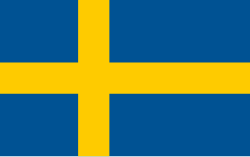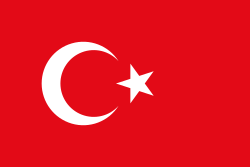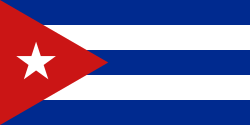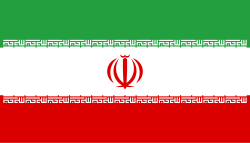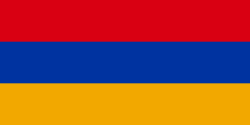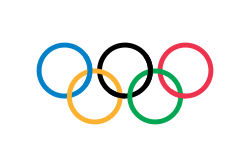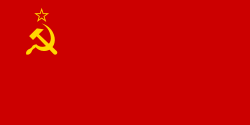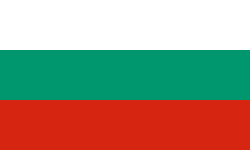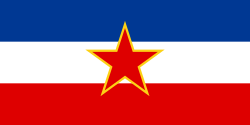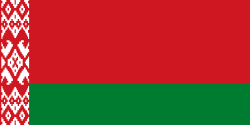Nicolae Martinescu
| Nicolae Martinescu | |
|---|---|
 | |
| Narození | 24. února 1940 Vișani |
| Úmrtí | 1. dubna 2013 (ve věku 73 let) Bukurešť |
| Povolání | zápasník |
| Ocenění | zasloužilý mistr sportu SSSR |
| Choť | Mioara Velicu (1972–2013)[1] |
| Některá data mohou pocházet z datové položky. | |
| Přehled medailí | ||
|---|---|---|
| bronz | LOH 1968 | zápas ř.-ř., lehká těžká váha |
| zlato | LOH 1972 | zápas ř.-ř., těžká váha |
| Mistrovství světa v zápasu řecko-římském | ||
| stříbro | MS 1963 | těžká váha |
| bronz | MS 1966 | těžká váha |
| bronz | MS 1967 | těžká váha |
| bronz | MS 1970 | supertěžká váha |
| stříbro | MS 1971 | těžká váha |
| bronz | MS 1974 | těžká váha |
| Mistrovství Evropy v zápasu řecko-římském | ||
| zlato | ME 1966 | těžká váha |
| bronz | ME 1972 | těžká váha |
| bronz | ME 1973 | těžká váha |
Nicolae Martinescu (24. února 1940 Vișani, Rumunsko - 1. dubna 2013 Bukurešť, Rumunsko) byl rumunský zápasník, reprezentant v zápase řecko-římském, olympijský šampion, stříbrný z mistrovství světa a mistr Evropy.
Kariéra
Čtyřikrát startoval na olympijských hrách. Při své premiéře v roce 1964 v Tokiu vybojoval v lehké těžké váze čtvrté místo. O čtyři roky později, v roce 1968 na hrách v Mexiku, dosáhl v této kategorii na bronzovou medaili. Největšího úspěchu pak dosáhl v roce 1972 na hrách v Mnichově, kde v těžké váze vybojoval zlatou medaili. Na své poslední olympiádě, v roce 1976 v Montréalu, obsadil ve stejné kategorii dělené sedmé místo.
Reference
- ↑ Nicolae Martinescu a murit. Povestea fostului campion olimpic al României la lupte, căsătorit cu Mioara Velicu. Dostupné online.
Externí odkazy
 Obrázky, zvuky či videa k tématu Nicolae Martinescu na Wikimedia Commons
Obrázky, zvuky či videa k tématu Nicolae Martinescu na Wikimedia Commons - Nicolae Martinescu v databázi Olympedia (anglicky)
Média použitá na této stránce
Olympic Rings without "rims" (gaps between the rings), As used, eg. in the logos of the 2008 and 2016 Olympics. The colour scheme applied here was specified in 2023 guidelines.
Olympic Rings without "rims" (gaps between the rings), As used, eg. in the logos of the 2008 and 2016 Olympics. The colour scheme applied here was specified in 2023 guidelines.
Finská vlajka
this is the flag of the Soviet Union in 1936. It was later replaced by File:Flag of the Soviet Union (1955-1980).svg.
(c) I, Cmapm, CC BY-SA 3.0
The flag of the Soviet Union (1955-1991) using a darker shade of red.
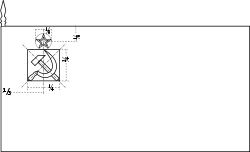
(c) I, Cmapm, CC BY-SA 3.0
The flag of the Soviet Union (1955-1991) using a darker shade of red.

Flag of Romania, (21 August 1965 - 22 December 1989/officialy 27 December 1989).

Construction sheet of the Flag of Romania as depicted in Decree nr. 972 from 5 November 1968.
- l = 2/3 × L
- C = 1/3 × L
- S = 2/5 × l
Autor: Scroch, Licence: CC BY-SA 3.0
Flag of Bulgaria (1971-1990). Flag of Bulgaria with Bulgarian coat from 1971.
Autor: Scroch, Licence: CC BY-SA 3.0
Flag of Bulgaria (1971-1990). Flag of Bulgaria with Bulgarian coat from 1971.
Flag of Iran. The tricolor flag was introduced in 1906, but after the Islamic Revolution of 1979 the Arabic words 'Allahu akbar' ('God is great'), written in the Kufic script of the Qur'an and repeated 22 times, were added to the red and green strips where they border the white central strip and in the middle is the emblem of Iran (which is a stylized Persian alphabet of the Arabic word Allah ("God")).
The official ISIRI standard (translation at FotW) gives two slightly different methods of construction for the flag: a compass-and-straightedge construction used for File:Flag of Iran (official).svg, and a "simplified" construction sheet with rational numbers used for this file.
Olympijská vlajka
Flag of the Socialist Federal Republic of Yugoslavia (1946-1992).
The design (blazon) is defined in Article 4 of the Constitution for the Republic of Yugoslavia (1946). [1]
Georgian flag in Pantone MS.
Flag of Romania, (21 August 1965 - 22 December 1989/officialy 27 December 1989).

Construction sheet of the Flag of Romania as depicted in Decree nr. 972 from 5 November 1968.
- l = 2/3 × L
- C = 1/3 × L
- S = 2/5 × l
Nicolae Martinescu




